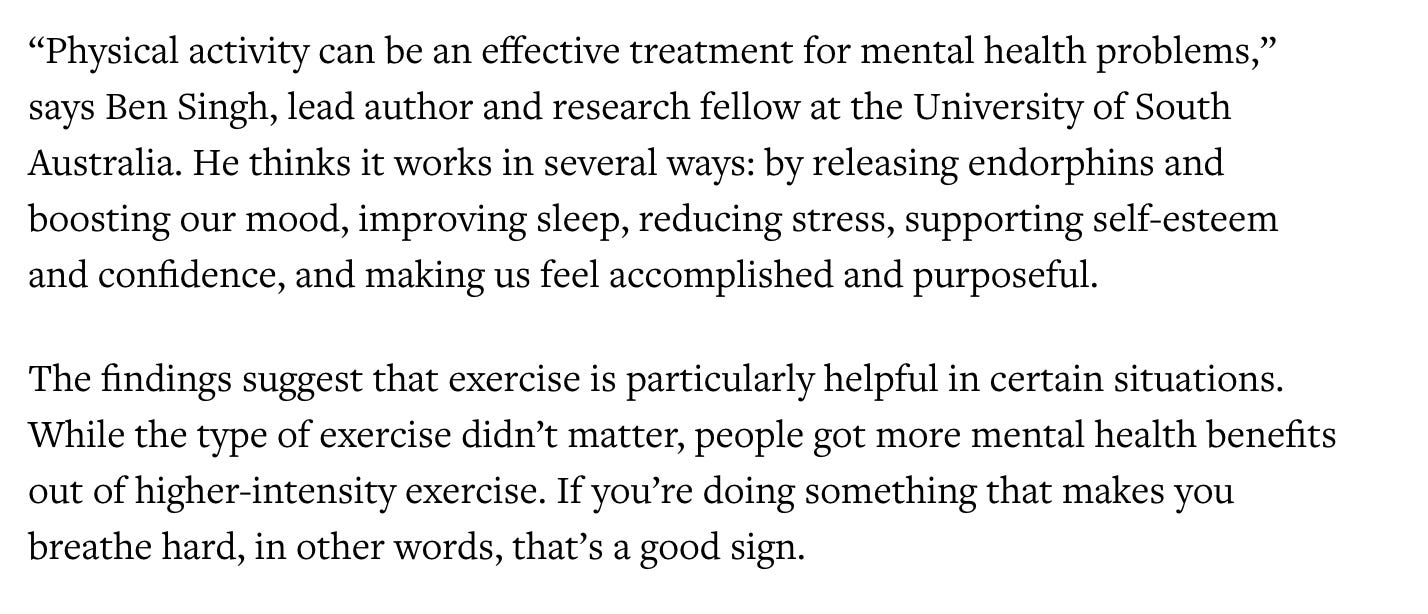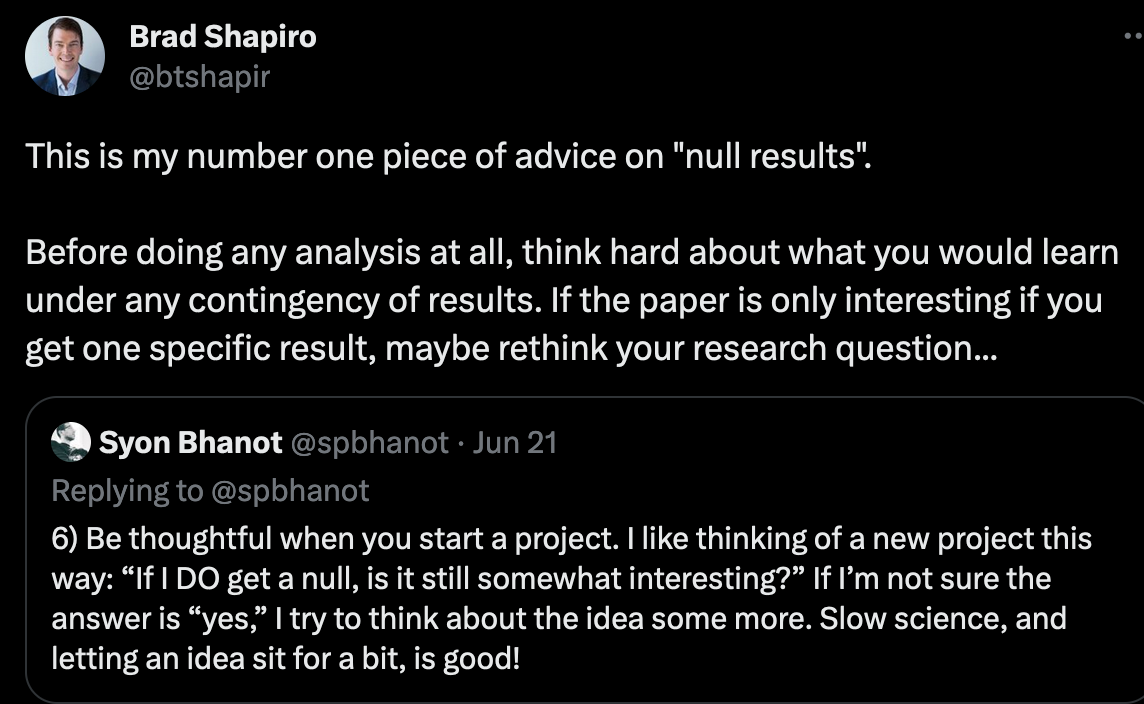super babies, exercise for mental health & the burden of knowledge
CC#65 - Developing Taste,Null Results & Decreasing Life Expectancy in the U.S.
Hey there and welcome to ✨ CuratedCuriosity - a bi-weekly newsletter delivering inspiration from all over the internet to the notoriously curious.
Things I Enjoyed Reading.
👶 Can Super Babies Save the World?
An article about the pronatalist movement - a group of people who want to “save the world” by having children that are genetically superior. I am definitely quite sceptical of this approach/philosophy, nonetheless, quite thought-provoking.
Malcolm, 36, and his wife, Simone, 35, are "pronatalists," part of a quiet but growing movement taking hold in wealthy tech and venture-capitalist circles. People like the Collinses fear that falling birth rates in certain developed countries like the United States and most of Europe will lead to the extinction of cultures, the breakdown of economies, and, ultimately, the collapse of civilization. It's a theory that Elon Musk has championed on his Twitter feed, that Ross Douthat has defended in The New York Times' opinion pages, and that Joe Rogan and the billionaire venture capitalist Marc Andreessen bantered about on "The Joe Rogan Experience." It's also, alarmingly, been used by some to justify white supremacy around the world, from the tiki-torch-carrying marchers in Charlottesville, Virginia, chanting "You will not replace us" to the mosque shooter in Christchurch, New Zealand, who opened his 2019 manifesto: "It's the birthrates. It's the birthrates. It's the birthrates."
⛰️ AI and The Burden of Knowledge
It takes longer and longer for humans to reach the top of the “hill of knowledge” in a certain scientific field, giving them less time to make inventions. What does it mean that AI - which you could say is ‘immortal’ does not face this burden?
The economist Benjamin Jones refers to this malady as “the burden of knowledge.” As we learn more and more, our burden grows; as the tunnel stretches farther and farther, it takes more time to reach its present terminus. Jones documents the result of this: the age at which notable inventions occur is significantly increasing. In 1900, for example, the peak ability to generate a great invention occurred at roughly 30 years old. By 2000, it had risen to nearly 40.
Does that matter? As long as we arrive, eventually, isn’t that good enough? Not really – mostly because we have the bad habit of degrading and, eventually, dying. The more time it takes someone to reach the end of the tunnel, the less time they have to actually dig. In particular, they have many fewer “peak” years during which they might make a groundbreaking discovery; longer life expectancies don’t solve this problem since the geriatric do not tend to be a fecund source of innovation. (…) An invasive species has arrived. We would call it “artificial intelligence.” (…) The Encephalon has many such peculiarities but chief among them is the fact that it does not degrade and it does not die. Instead, it simply improves.
🧂 What I Do When I Can’t Sleep
This article isn’t really about sleep, rather it is an article about taste, how important is to articulate your taste and how AI can be a helpful sidekick in that.
I think there’s a deep lesson here. It’s about how to develop taste, not just in food or wine, but in any creative endeavor that’s important to you: building products, writing essays, building marketing campaigns, or making YouTube videos.
In each of these domains, you already know instinctively what you like. Moment-by-moment you are drawn to things: Apple’s Vision Pro, the title of a particular book, or a certain YouTuber’s intro sequence. You also shy away from other things: try-hard tweet threads, or podcasts about conspiracy theories. But this whole process is done in a part of your brain that is pre-linguistic and intuitive. Therefore it’s private and unrefined.
Making what you like explicit is a powerful tool. It will help you articulate it to yourself and to other people. This will help you refine and make more of it.
The truly great creatives I’ve run into in business or in art can all do this incredibly well. They can look at a painting, a pitch deck, a product, or a novel and reel off exactly what they like and why.
Articulating what you like is the only way to make great stuff. And it’s a skill that can be learned. Interestingly, it’s one of the things that AI is great at teaching. (We’ll get to the AI a little later, though.)
Food for Thought.
🏋️♀️ A new meta-study has shown that exercise is good for mental health, even more so when it comes to higher intensity workouts.

🌏 I have to admit that most of my “information diet” and reading is quite western-culture-centric, so this was another reminder to myself how small of a snippet of this world’s reality most of the blogs, newspapers and social media I read are representing. If you have any good recommendations for Asian and/or Afriacan blogs etc.
Random Stuff.
🌏 Yet another reason to protect our home planet…

🧑🔬 Some good advice/reminder for researchers (including myself)…
Personal Update.
Attended the International Computational Social Sciences Conference in Copenhagen - truly lots of fun & inspiring presentations! From using reddit data to analyse what people dream about, to the personality traits of large language models and what social scientists can learn from evolutionary biology. Also got to present a bit of my own work and really got some helpful feedback.
Last week I spent some time with friends and family back in Austria - went to a tiny rock festival on the Austrian country side, celebrated some birthdays and chased run away chickens on my cousin’s farm. Press play for some good vibes.
Now back to CPH, with lot’s of new (aka too many) ideas to work on…







